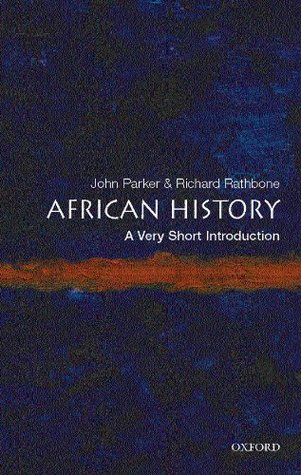More on this book
Kindle Notes & Highlights
by
John Parker
Read between
November 27, 2022 - February 4, 2023
a very short introduction to two very big topics.
a place and its people: Africa.
the past of that place, as it has been envisaged by Africans and writte...
This highlight has been truncated due to consecutive passage length restrictions.
aim is to reflect upon the changing ways that the African past has been imagined and represented.
the question of race enters the picture,
the general European perception was that Africa, especially sub-Saharan Africa, had no history to speak of.
racial perceptions
part and parcel of the era of European imperialism and were mobilized to justify the conquest and partition of Africa
to think about Africa as a place, we must think historically.
Africa was initially fashioned not by Africans but by non-Africans, as a ‘paradigm of difference’.
‘Libyans’
used to distinguish the peoples of the Mediterranean coast from darker-skinned ‘Ethiopians’
Portuguese voyages
initiated a process that would transform European thinking about Africans.
Atlantic slave trade,
forged an explicit link in European minds between racial inferiority, enslavement, and Africa.
Olaudah Equiano
Alexander Crummell, Martin Delany, and Edward W. Blyden.
Muslim Arabs,
swept out of the Arabian peninsula, conquering the whole of coastal North Africa, and in 711 extending their rule over Spain and Portugal.
Berber
a more fundamental worldview based on faith.
Dar al-Islam
Dar al-Harb
camel-riding Berber
bilad as...
This highlight has been truncated due to consecutive passage length restrictions.
‘the lands of th...
This highlight has been truncated due to consecutive passage length restrictions.
‘paganism’ rather than skin colour that remained the principal justification for enslavement.
‘Hamitic hypothesis’
the notion that fair-skinned invaders from the north were responsible for the diffusion of whatever cultural achievement was deemed to exist in black Africa.
‘Races’, ‘tribes’, ‘kinship systems’, and a variety of other frameworks into which outside observers have squeezed African societies have now been abandoned or questioned.
the lived experience of ordinary people
the actions of ‘great men’.
Scattered, mobile populations in turn limited the ability of would-be state-builders to establish centralized political power.
Primeval, impenetrable, monotonous, and, above all, dark, ‘the jungle’ was seen to have bred the most extreme primitiveness.
exotic food crops has transformed farming systems:
Excavations have revealed, however, that Jenne-jeno was sub-Saharan Africa’s oldest yet known urban centre, founded in the 3rd century BC
themes
the question of identities,
the problem of ...
This highlight has been truncated due to consecutive passage length restrictions.
the tension between internal and external dynamics in...
This highlight has been truncated due to consecutive passage length restrictions.
middle reaches of the Niger River
associated with the succession of three empires that dominated the political landscape of the western Sudan from the 8th to the 16th century:
Ghana, Mali, and Songhay.
social harmony through a process of ‘ethnic accommodation’,
the autonomy of the local village community,
kafu,
notions of occul...
This highlight has been truncated due to consecutive passage length restrictions.
n...
This highlight has been truncated due to consecutive passage length restrictions.
a northern branch of the Mande cultural group, the Soninke, who dominated the kingdom of Ghana.


